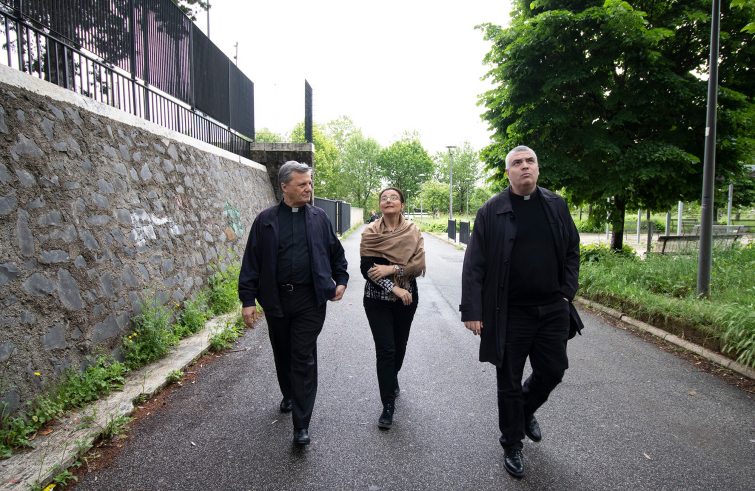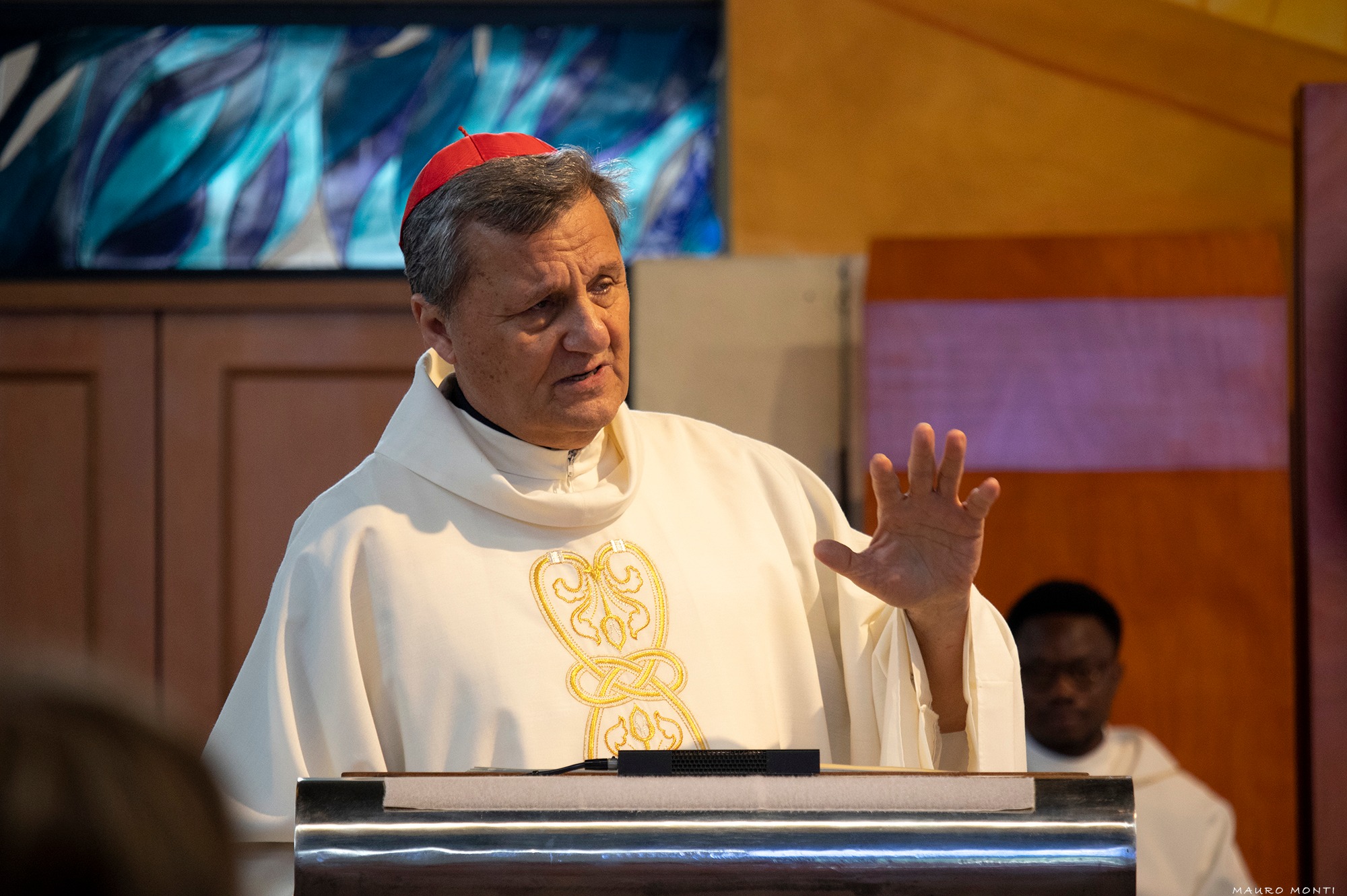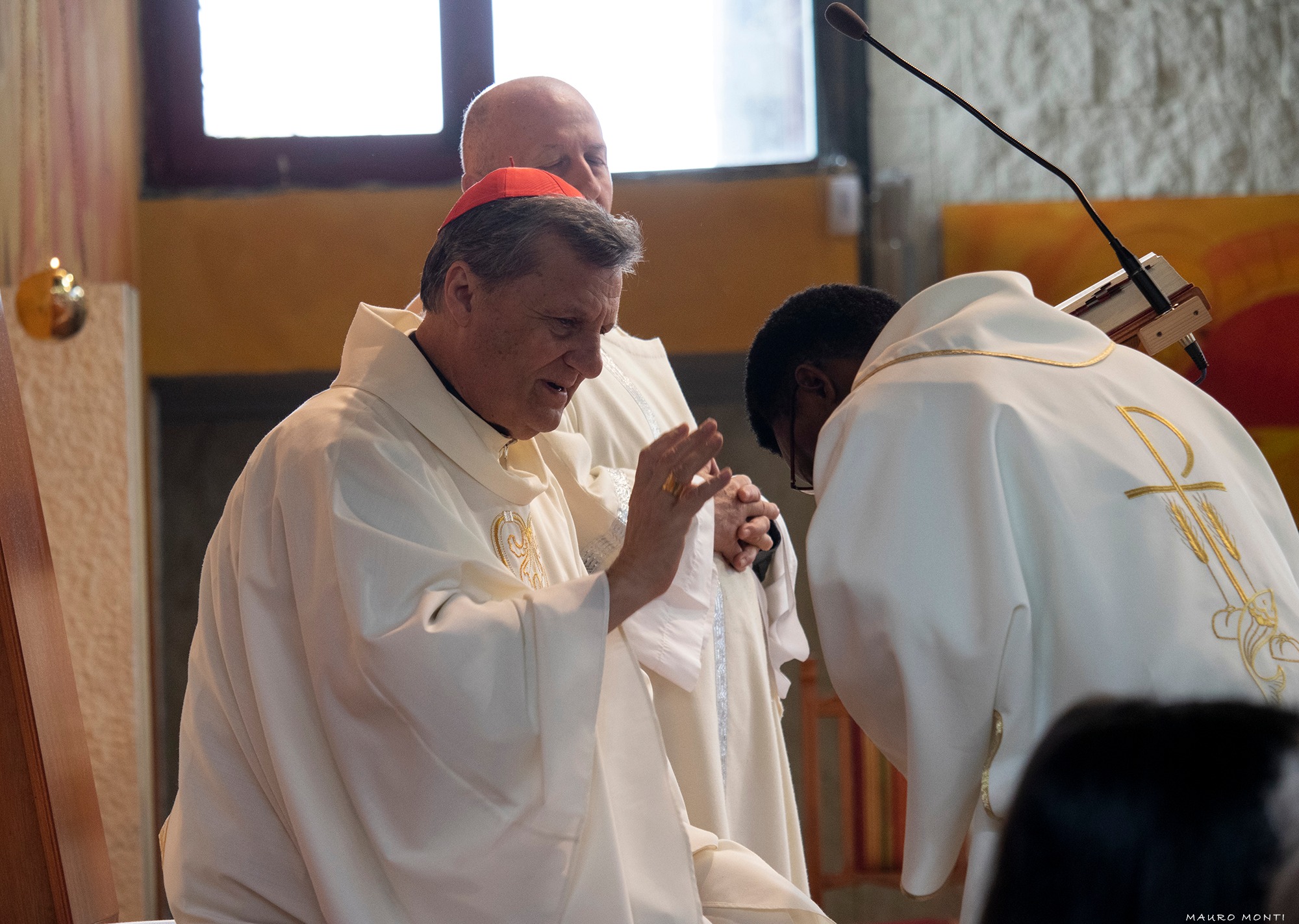
Cardinal Mario Grech, Secretary General of General Secretary of the Synod, visited Rome’s Catholic community in Corviale, where he celebrated Holy Mass and visited the construction sites set up in the parish of St. Paul of the Cross. This encounter, held in the grounds of a kilometre-long block of flats, Rome’s geographic and existential periphery, was also an opportunity to assess the progress of the Synodal path and its meaning, and how it is perceived by the faithful. Cardinal Grech answered some of our questions.
 Why is this Synod important? How can it contribute to the path of the Church?
Why is this Synod important? How can it contribute to the path of the Church?
It comprises everything, because a synodal Church is a Church that involves all the baptised; one that embraces the callings, the charisms, and the ministries that the Spirit bestows upon the Church, and together we all contribute to the same mission, that is to help modern man to know the Lord Jesus.
At the start of the synodal journey, in 2021, you said: “Do not be afraid to share your fears with us”, and faced with the uncertainties of a synodal journey whose outcome was unknown, you asked everyone to voice their doubts, perplexities, fears. There was just one certainty: the Synod is “the maternal and paternal home.” Have you experienced this kind of sharing in the past two years of activity?
I did. I met people who were enthusiastic because they understood – or are now understanding – the meaning of this calling. I also met people who experienced these fears, these uncertainties at first, but now they too are enthusiastic and are taking part in this journey. I continue meeting people who harbour these doubts, and this does not surprise me, because synodality is not something new. At the synodal assembly for the Oriental Churches in Beirut, a Patriarch said to me: “this should be a penitential process, because synodality was a gift, a gem of the Church from the first centuries, and we have lost it.” I am saying this to point out that although the Holy Father is making this new call, in reality nothing about it is new. In fact, it is an invitation to learn more about the Church, about who we are. I realise there are difficulties, but we need time. The Holy Father continually says: We initiate processes and processes need time, so that nothing is coerced or imposed, but all of us, with the help of the Holy Spirit, become convinced that this is God’s calling.
 At the outset, you also said that ‘the Synod is not a democratic process'”, thereby sending out two challenges: dropping the Synod vote, to avoid creating a majority and an opposition; and handing over the Synod document first to the local Churches and then to the Pope. Is this the course of action?
At the outset, you also said that ‘the Synod is not a democratic process'”, thereby sending out two challenges: dropping the Synod vote, to avoid creating a majority and an opposition; and handing over the Synod document first to the local Churches and then to the Pope. Is this the course of action?
I will say it in the words of the Holy Father: Synodality does not amount to the democratisation of the Church, because the Church is inherently both Synodal and hierarchical. The Lord has bestowed on the Church the gift of the Ministry of the Bishop, who guarantees that we are following the right path. The bishop is the one who certifies the validity of discernment, and therefore, in my view, the question of democratic vote is out of tune, for in our meetings our goal is not to prevail over others, but to jointly listen to the Spirit. And the Spirit is One. We also should learn to wait for each other before we undertake a journey, so that through this collective, ecclesial discernment, with the help of the Spirit, we will achieve unanimity, a shared stance. I am well aware that this will not be easy and that it will take time, time, time.
What is the role of lay Catholics and why is it important for them to express their views and feel that they are active players in the Synod and the Church? Moreover, does the Church – understood above all as Church hierarchy – listen to the People of God?
We are the Holy People of God, we received the gift of the Holy Spirit in baptism, as disciples we became temples of the Spirit, and the Spirit is at work in everyone’s life, and speaks through everyone, including through sinners. Therefore, all those who have been baptised have a responsibility to communicate what they believe the Spirit is communicating through them for the good of the Church. Based on the experience of the continental assemblies, almost all the assemblies realised that they benefited from what is called Spiritual conversation. Whenever we come together, it is not to change the other person’s opinion or to argue, but for the purpose of joint discernment, and so also the lay faithful play a central role – although the chief protagonist is the Holy Spirit. Therefore, instead of separating the laity from the hierarchy, or worse still, pitting the laity and Church hierarchy against each other, we should remember that we are in communion, we are the Holy People of God. We are a Church where all of us, according to our particular callings, charisms and ministries, help each other in order to fully grasp the will of the Lord.









